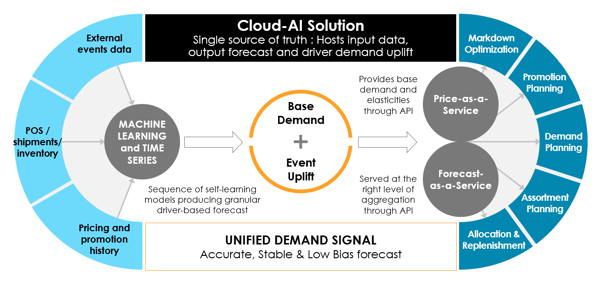Traditional commerce software helps retailers manage operations, but intelligent technology like artificial intelligence (AI) is critical to help them remain competitive. With more than 9,000 brick-and-mortar stores closed in 2019, the retail industry is facing an unprecedented crisis. Competing with online e-commerce platforms such as Amazon is complicated—and old retail technology isn’t helping much.
While the biggest players in the retail software market are making significant advancements to adapt to this new reality, new vendors take a different approach by focusing exclusively on advanced technologies.
One such vendor is Antuit.ai, a Goldman Sachs company, which claims to be “different by design” and “technology agnostic.” What this means is that, instead of improving traditional software, Antuit.ai uses new technology and expertise to create advanced analytics solutions that work with any retail software. In other words, Antuit.ai does not replace software for retail operations management; it augments it with insights.

Antuit.ai’s business strategy also relies on more traditional methods, such as mergers and acquisitions. The company recently announced that it acquired Forecast Horizon, a provider of cloud-based, AI-powered retail solutions. Forecast Horizon’s offering covers multiple retail functions, such as assortments, promotions, markdowns, and allocations. Other than their focus on AI, both companies specialize in optimization solutions and have extensive domain expertise. Forecast Horizon also provides software for online and in-store commerce, which can help retailers better compete with platforms such as Amazon.
It is difficult to say how this type of new software will evolve. Antuit.ai may end up being acquired by traditional retail software vendors or could consolidate with other similar companies. The vendor already acquired YDatalytics in 2016, AuriQ Systems’ Japanese business, and Prognos in 2015.
The retail software market is changing significantly, but the primary trend seems to be the same as always: consolidation, and a tendency toward an oligopoly.



 by Gabriel Gheorghiu
by Gabriel Gheorghiu
 by Gabriel Gheorghiu
by Gabriel Gheorghiu
 by Gabriel Gheorghiu
by Gabriel Gheorghiu